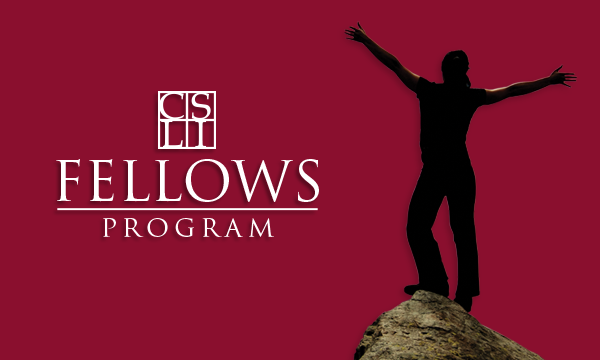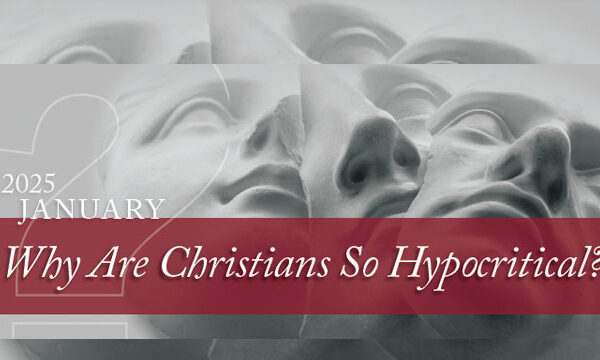Back to series

June 2020
In his book Mere Christianity, C.S. Lewis observes that the word “morality” raises in many people’s minds “something that interferes, something that stops you from having a good time.” Lewis argues, however, that “[i]n reality, moral rules are directions for running the human machine. Every moral rule is there to prevent a breakdown, or a strain, or a friction, in the running of that machine.” 1 He observes further:
 There are two ways in which the human machine goes wrong. One is when human individuals drift apart from one another, or else collide with one another and do one another damage, by cheating or bullying. The other is when things go wrong inside the individual – when the different parts of him (his different faculties and desires and so on) either drift apart or interfere with one another. You can get the idea plain if you think of us as a fleet of ships sailing in formation. The voyage will be a success only, in the first place, if the ships do not collide and get in one another's way; and, secondly, if each ship is seaworthy and has her engines in good order. As a matter of fact, you cannot have either of these two things without the other. If the ships keep on having collisions they will not remain seaworthy very long. On the other hand, if their steering gears are out of order they will not be able to avoid collisions. Or, if you like, think of humanity as a band playing a tune. To get a good result, you need two things. Each player's individual instrument must be in tune and also each must come in at the right moment so as to combine with all the others.
There are two ways in which the human machine goes wrong. One is when human individuals drift apart from one another, or else collide with one another and do one another damage, by cheating or bullying. The other is when things go wrong inside the individual – when the different parts of him (his different faculties and desires and so on) either drift apart or interfere with one another. You can get the idea plain if you think of us as a fleet of ships sailing in formation. The voyage will be a success only, in the first place, if the ships do not collide and get in one another's way; and, secondly, if each ship is seaworthy and has her engines in good order. As a matter of fact, you cannot have either of these two things without the other. If the ships keep on having collisions they will not remain seaworthy very long. On the other hand, if their steering gears are out of order they will not be able to avoid collisions. Or, if you like, think of humanity as a band playing a tune. To get a good result, you need two things. Each player's individual instrument must be in tune and also each must come in at the right moment so as to combine with all the others.
But there is one thing we have not yet taken into account. We have not asked where the fleet is trying to get to, or what piece of music the band is trying to play. The instruments might be all in tune and might all come in at the right moment, but even so the performance would not be a success if they had been engaged to provide dance music and actually played nothing but Dead Marches. And however well the fleet sailed, its voyage would be a failure if it were meant to reach New York and actually arrived at Calcutta.
Morality, then, seems to be concerned with three things. Firstly, with fair play and harmony between individuals. Secondly, with what might be called tidying up or harmonising the things inside each individual. Thirdly, with the general purpose of human life as a whole: what man was made for: what course the whole fleet ought to be on: what tune the conductor of the band wants it to play.2
In the final paragraph of the chapter this excerpt is taken from, Lewis states, “It seems, then, that if we are to think about morality, we must think of all three departments: relations between man and man: things inside each man: and relations between man and the power that made him. We can all co-operate in the first one. Disagreements begin with the second and become serious with the third. It is in dealing with the third that the main differences between Christian and non-Christian morality come out.”3
What do think about Lewis’s analysis of the elements of morality? After prayerfully thinking about it, how does being a follower of Christ affect your morality and the way you live your life?
“Or do you not know that your body is a temple of the Holy Spirit within you,
whom you have from God? You are not your own, for you were bought with a price.
So glorify God in your body.”
1 CORINTHIANS 6:19-20 (ESV)
1 C.S. Lewis, Mere Christianity, Touchstone: New York, 1996, p. 69.
2 Ibid., pp. 70-71.
3 Ibid., p. 73.
 COPYRIGHT: This publication is published by C.S. Lewis Institute; 8001 Braddock Road, Suite 301; Springfield, VA 22151. Portions of the publication may be reproduced for noncommercial, local church or ministry use without prior permission. Electronic copies of the PDF files may be duplicated and transmitted via e-mail for personal and church use. Articles may not be modified without prior written permission of the Institute. For questions, contact the Institute: 703.914.5602 or email us.
COPYRIGHT: This publication is published by C.S. Lewis Institute; 8001 Braddock Road, Suite 301; Springfield, VA 22151. Portions of the publication may be reproduced for noncommercial, local church or ministry use without prior permission. Electronic copies of the PDF files may be duplicated and transmitted via e-mail for personal and church use. Articles may not be modified without prior written permission of the Institute. For questions, contact the Institute: 703.914.5602 or email us.
-
Recent Podcasts
The Priority of Prayer
by Thomas A. Tarrants, Aimee Riegert on December 27, 2024The Kingdom of God moves forward through Prayer....Read More
-
Hyper-Realist Finds Faith – Spencer Durrenberger’s Story
by Spencer Durrenberger on December 20, 2024
-
First Steps to Loving and Understanding Our Jewish Neighbors
by Aimee Riegert, Randy Newman on December 13, 2024
-
Recent Publications
Why Are Christians So Hypocritical?
by Christopher L. Reese on January 1, 2025Oh, the hypocrisy of those Christians—they talk so...Read More
-
How Artists and Their Art Can Point Us to the Creator
by Russ Ramsey on December 2, 2024
-
What about Jesus’s Childhood?
by Jim Phillips on December 1, 2024
0
All Booked
0.00
All Booked
0.00
All Booked
23903
Fellows Program – Applications Available on February 1st!
https://www.cslewisinstitute.org/?event=fellows-program-applications-available-on-february-1st&event_date=2025-02-01®=1
https://www.paypal.com/cgi-bin/webscr
2025-02-01

Next coming event
Days
Hours
Minutes
Seconds
Fellows Program – Applications Available on February 1st!
On February 1, 2025 at 7:00 amSpeakers

C.S. Lewis Institute
Author
Team Members
C.S. Lewis Institute
Author
C.S. Lewis Institute, in the legacy of C.S. Lewis, works to develop wholehearted disciples of Jesus Christ who will articulate, defend, share, and live their faith in personal and public life. Founded in 1976 by Dr. James Houston and James R. Hiskey, the Institute provides leading teachers who address important issues of the day from the perspective of Biblical orthodoxy, while also providing discipleship for individuals in small groups.





